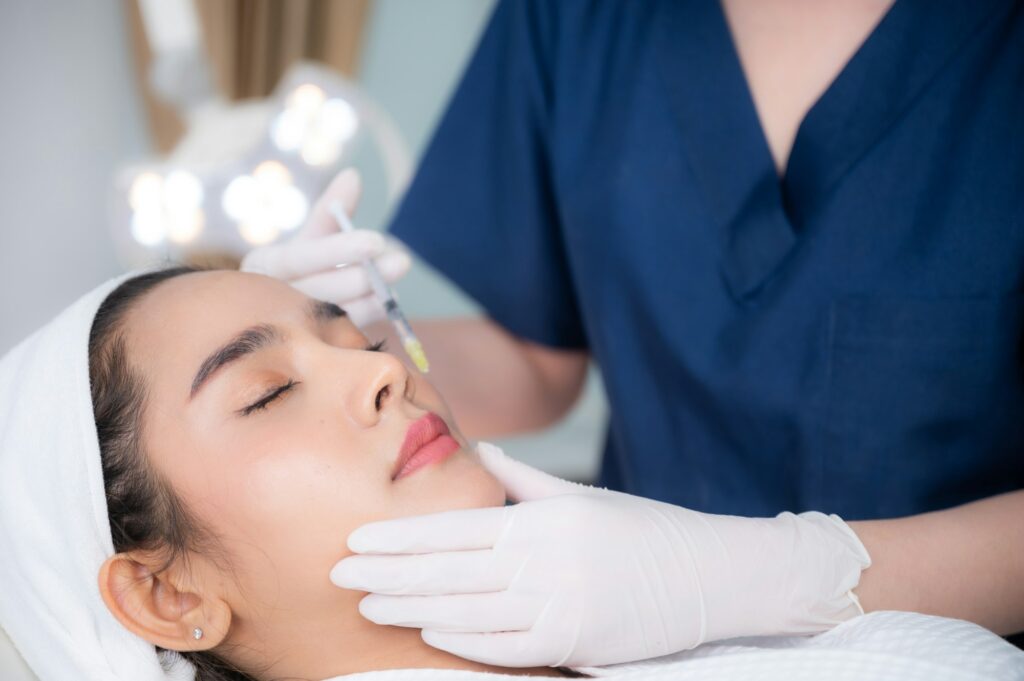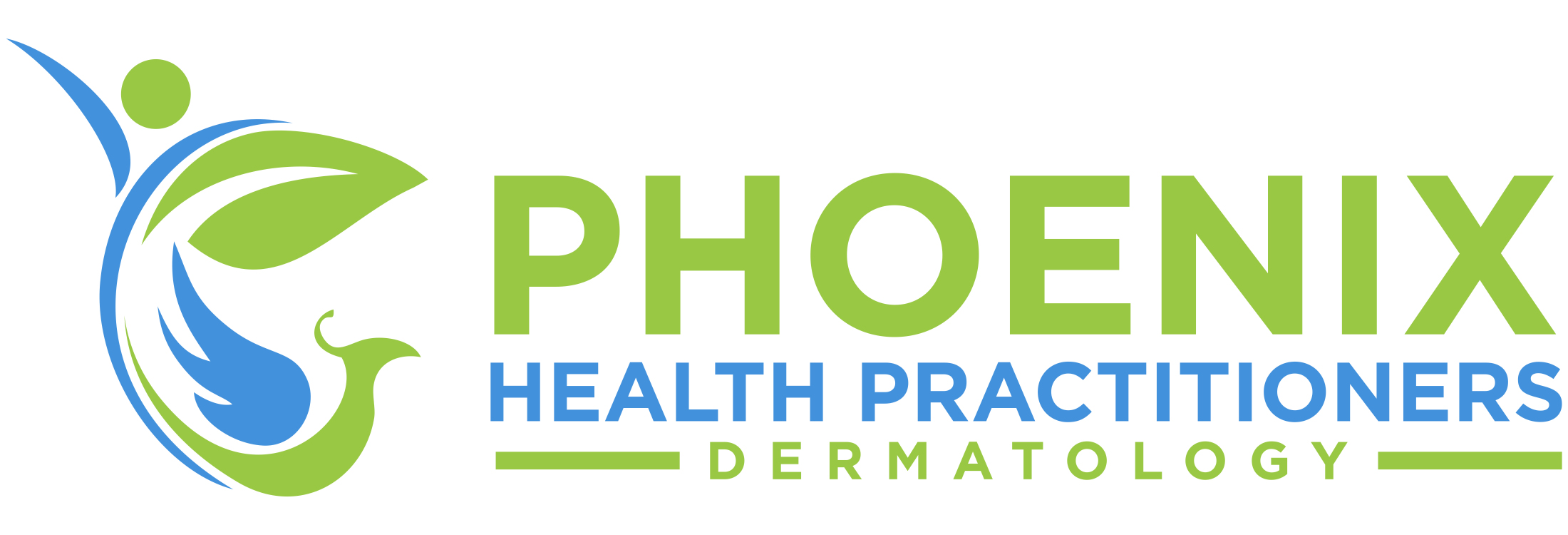Rashes, Psoriasis & Eczema Treatment
Struggling with rashes, psoriasis, or eczema? Our expert dermatologists provide advanced Psoriasis and Eczema Treatment to relieve itching, inflammation, and discomfort. We offer personalized care plans to help you manage chronic skin conditions and restore healthy, comfortable skin. Schedule a consultation today to start your journey to clearer skin.
Here’s a breakdown of some common types of dermatitis:
Atopic Dermatitis (Eczema):
• This is the most common form of eczema, often affecting children but can persist into adulthood.
• Symptoms include dry, itchy, inflamed skin with flare-ups triggered by irritants, allergens, or stress.
• It commonly appears on the face, hands, inner elbows, and knees.
Seborrheic Dermatitis (Dandruff):
• This inflammatory condition affects the scalp, causing flaky, white or yellowish scales (dandruff).
• It can also appear on oily areas of the face, chest, and back as red, greasy patches.
• Seborrheic dermatitis is often triggered by yeast overgrowth and can be aggravated by stress or cold weather.
Contact Dermatitis:
• This is a reaction caused by direct contact with an irritant or allergen.
• Irritant contact dermatitis can develop upon contact with harsh soaps, detergents, chemicals, or friction.
• Allergic contact dermatitis results from an allergic reaction to substances like nickel, fragrances, or latex.
• Symptoms typically appear within 48 hours of exposure and involve redness, itching, and blistering in the affected area.
Stasis Dermatitis:
• This condition occurs due to poor circulation, often affecting the lower legs.
• Symptoms include itchy, red, swollen skin, and may develop into open sores.
• Stasis dermatitis is more common in people with varicose veins or who stand or sit for long periods.
Perioral Dermatitis:
• This inflammatory rash appears around the mouth, with tiny red bumps and papules.
• The cause is unknown, but it might be linked to topical steroid use or certain cosmetics.
Neurodermatitis (Lichen Simplex Chronicus):
• This condition involves a single itchy patch of skin, often on the scalp, neck, wrists, ankles, or genitals.
• Scratching the area intensifies the itch, creating a cycle that worsens the condition.
• Stress and anxiety are often triggers for neurodermatitis.
Nummular Dermatitis (Discoid Eczema):
• This eczema variant presents as round or oval-shaped itchy patches, resembling coins.
• It commonly appears on the legs, arms, hands, and torso.
• The exact cause is unknown, but it might be linked to allergies, dry skin, or stress.
Plaque Psoriasis:
• Normally, skin cells grow deep down and slowly move to the surface, replacing older cells every few weeks.
• In psoriasis, this process goes into overdrive. New skin cells are created way too quickly, piling up on the surface before the old ones have time to shed.
This buildup leads to the main symptoms of psoriasis:
• Red, scaly patches: These patches can appear anywhere, but they’re most common on elbows, knees, scalp, and lower back.
• Itchiness: The rapid growth and dry, scaly buildup can be very itchy and uncomfortable.
Psoriasis isn’t contagious:
• You can’t catch it from someone else. The exact cause is unknown, but it’s thought to be a combination of genetics and environmental factors.
• There’s no cure for psoriasis, but it can be managed:
• There are various treatments available to control flare-ups, reduce symptoms, and improve quality of life. These can include creams, oral medications, biologics, and light therapy.
Here are some key takeaways about psoriasis:
• Rapid skin cell growth causes red, scaly patches on the skin.
• It’s not contagious.
• Treatments can help manage symptoms and flare-ups.
If you suspect you might have psoriasis, it’s important to see a medical provider for diagnosis and proper treatment.
These are just some of the common types of chronic dermatitis. If you experience any persistent skin concerns, it’s crucial to consult a dermatology provider for proper diagnosis and treatment.
Mari
I have been a patient of Tirsa’s for about 16 yrs now and she has always gone above and beyond with any service she has provided. She is professional, kind, clean, and a master at her craft. Wherever she goes, I will follow for my dermatology/cosmetic needs. She is also stunning inside and out. Ladies and gents, make an appt!
Neomia
Local Guide
Tirsa is a MASTER of fillers!!! Kindest bed side manner and is also a rare find since she is also a talented, educated dermatologist who can diagnose and treat several conditions. She has treated myself and and daughter!
Brenda
I found Tirsa over four years ago and I’m so thankful I did. Her warm and sincere personality, along with her knowledge and experience will definitely put you at ease the very first time you meet her. She listens to your concerns and explains the various options. She does not overdo any of the procedures. She doesn’t try to sell products or services that you don’t need. She is a natural at what she does. Thank you, Tirsa, for taking great care of me always, I would never consider going anywhere else!
K.G.A. Vassall
Local Guide
Tirsa Quartullo is a great Nurse Practitioner for Dermatology. She was able to make me feel comfortable even though I was there for an embarrassing skin condition. Tirsa’s years of expertise allowed her to quickly diagnose the issue and prepare a plan of treatment that was not only effective but affordable and easy to maintain.
It is quite freeing to know that an unpleasant time in my life will be over soon.
Thank you Tirsa!
Michelle
Tirsa Quartullo is the only one I trust because she does a beautiful job naturally. She pays close attention to detail and always does high-quality work. Every time I see her, I am impressed by how she creates amazing, natural-looking results. Her skill and professionalism make her the best choice for anyone wanting great work.
Tiffany
PHP Dermatology is wonderful! Tirsa is an Amazing provider! She is so knowledgeable and kind. Her talent, skill and expertise in Dermatology is evident as she talks with you and makes recommendations. Whether medical or cosmetic, she takes the time with you to make sure you feel heard, well cared for and beautiful!

Elevate Your Dermatological Experience with Our Expert Care
PHP Dermatology provides an array of resources for visitors who are seeking to enhance and improve their skin health.
